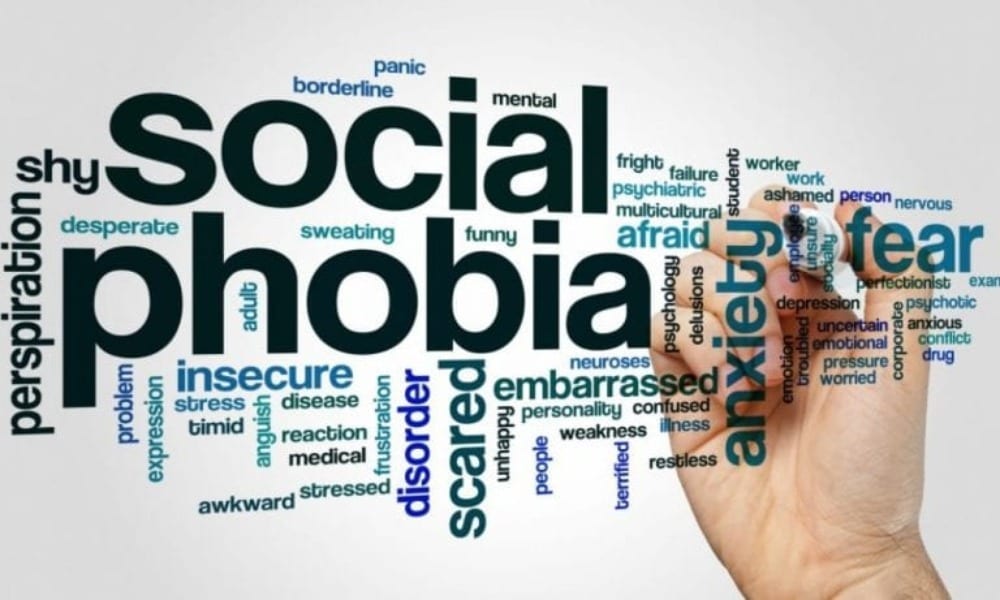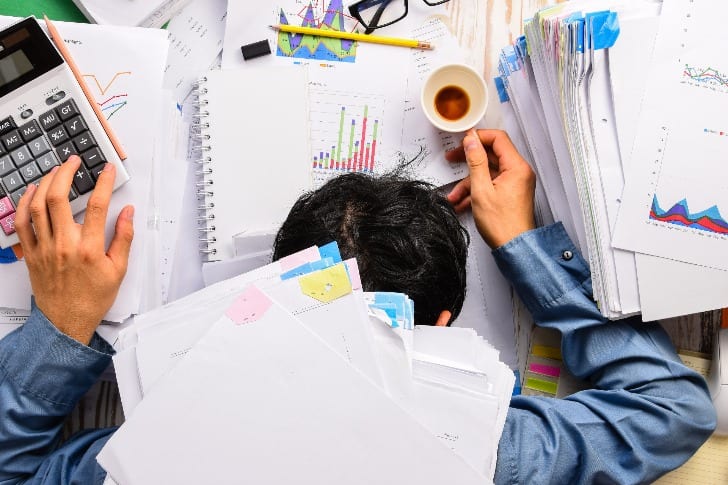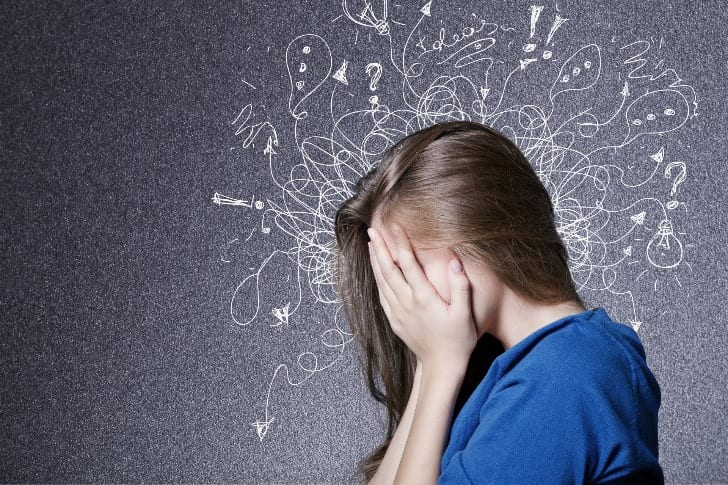
Triggered Phobia – 5 Ways It Affects Emotionally

Usually, it goes undetected unless a particular object or situation ‘triggers’ it – that’s how phobias work. Interfering in life and disrupting the calm that a person desperately needs while dealing with a fear of certain ‘something.’
Some people actually think that ignoring their phobia will make it go away, and they’ll be able to live a normal life, but as soon as they turn their back on this problem, something activates it, and once again, fear takes over.
A person might not think that they should be worried about a phobia at all, but then should it really be avoided? Let’s take a look at five ways that indicate when someone gets affected emotionally and mentally, before disregarding this condition.
Lack of A Social Life

fizkes/Shutterstock: Phobia affects one’s social life
In a few words, phobia limits one’s life. No matter what a person is afraid of, be it heights, darkness, small, or open spaces, they will never have a consistent or fear-free life if they are phobic. Nervousness will always be there, and they will keep thinking about a specific situation or thing that may or may not occur.
It affects social life, home life, even career, and to avoid these fearful situations, a person just limitstheir lifestyle, unintentionally creating a distance between themselves and their peers/family.
Embarrassment Is Imminent
All phobias can create embarrassing moments at certain points, but Social Anxiety Disorder (SAD) is of a special kind because the fear of public humiliation will stop someone from even trying. Standing in front of 12 people who are solely focused on you, might trigger a phobic reaction, which will embarrass a phobic person in front of others.
This turn of event will make them stop trying at all, and they might never appear in public. The side effect of this reaction is, anxiety might increase after such an embarrassing situation has occurred.
Keeping A Distance
Most of the time, phobias create circumstances where one will find themselveshiding away from people and trying to isolate as much as possible. This is not because they are afraid of people (unless that’s the phobia!), it’s the feeling of not belonging with the crowd that is too strong. This emotion can lead to reclusive behavior and, eventually, depression.
Feeling Powerless

Jes2u.photo/Shutterstock: Phobia leaves a person feeling powerless
Once phobia takes over significant parts of a life, like career, home, and personal relationships, people feel helpless. A belief creeps in that they’ll always be like this and never recover from the condition. The thought could lead to even lower self-esteem and self-confidence.
Accepting oneself as they are will also disturbthe current lifestyle, and even if they will want to change things, the feeling of powerlessness will halt them from doing anything.
Losing Control of Yourself

Billion Photos/Shutterstock: Struggles of a phobic individual
A phobic individual is always composed no matter the situation, but once the phobia gets triggered, they are unable to help themselves. This is the worst feeling, especially when someone is a decent person with a good family, loyal friends, and a successful career, yet one simple thing can render them helpless. This out-of-control feeling generally affects the whole life and not just a part of it.
It might not sound like a serious problem to many, but if someone is suffering from such symptoms, then they should consult a professional and not ignore it. Phobias can get treated just like any other medical condition – it’s only a matter of time and they can enjoy a happy time with family and friends, without worrying about their fear.
More in Medicare
-
`
What to Do in Ubud, Bali – Top Attractions & Activities
Ubud, the cultural heart of Bali, offers an array of activities that capture the essence of this enchanting island. From exploring...
September 11, 2024 -
`
Important Aspects of Your Health You Should Pay Attention To
When thinking about your health, it’s crucial to consider the key factors that create a solid foundation for your well-being. These...
September 6, 2024 -
`
6 Creative Birthday Party Ideas For Adults
Gone are the days when birthdays were just about cakes and candles. Now, it is all about creating memorable experiences that...
August 28, 2024 -
`
Are Chanel and Johnny leaving Days of Our Lives? Here Are the Facts
Fans of Days of Our Lives have been on the edge of their seats, wondering if Chanel and Johnny are leaving...
August 20, 2024 -
`
How Much Does Massage Business Make? A Profitability Breakdown
Curious about how much does massage business make? The massage spa industry in the United States is a significant sector, with...
August 14, 2024 -
`
How to Stay Healthy During Cold and Flu Season
Cold and flu season can be a daunting time, with the risk of illness looming large. Missing work, classes, or social...
August 9, 2024 -
`
Which US Virgin Island Is the Best for Your Dream Vacation
Choosing the perfect island for your dream vacation can be challenging, but each of the U.S. Virgin Islands offers something unique...
July 31, 2024 -
`
Is Taylor Swift ‘Officially’ Engaged to Travis Kelce?
Is Taylor Swift engaged to Travis Kelce? This question has been buzzing around fans lately. Well, their relationship has been nothing...
July 23, 2024 -
`
How to Become a Property Manager in 6 Easy Steps
So, you are wondering how to become a property manager? If you love real estate and have a knack for organization,...
July 17, 2024















You must be logged in to post a comment Login